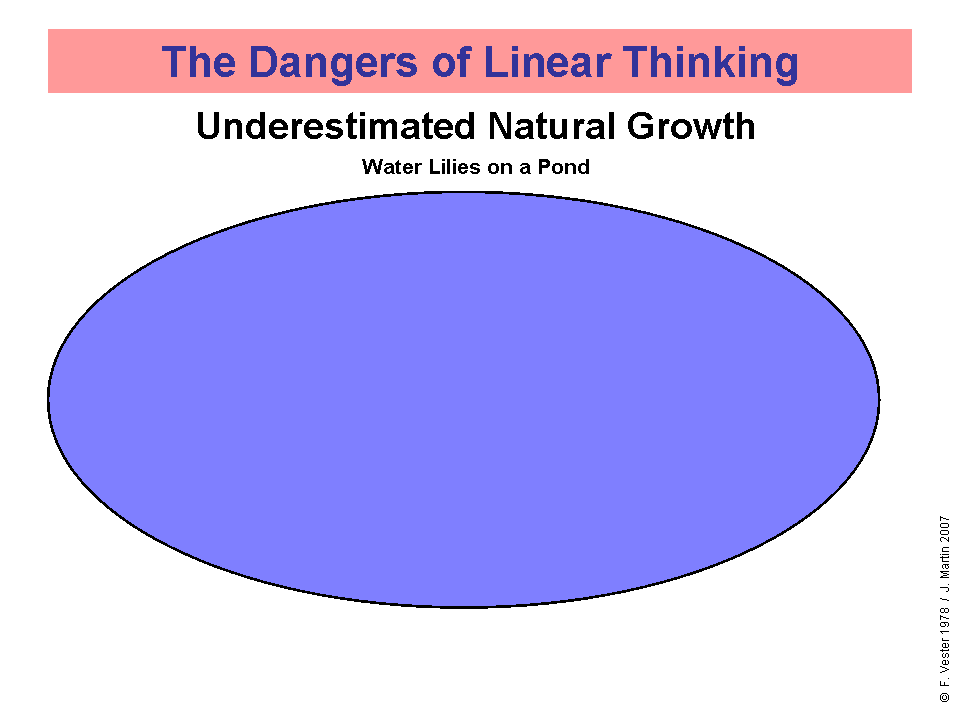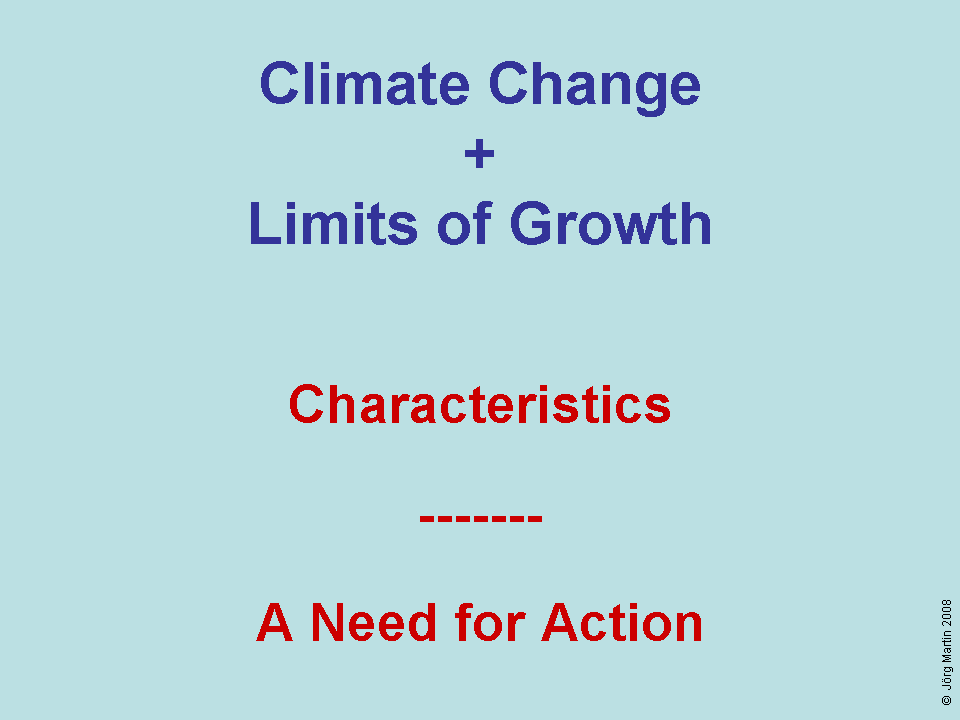
| Growth Curves | |
| • | Water Lily Pond |
| • | Pond Curves |
| • | Expection Curve |
| • | Tough Luck! |
| Limits of Growth | |
| • | Positive Feedback |
| • | Club of Rome |
| • | Amazon Region |
| Methane | |
| • | Resources |
| • | Chain Reaction |
The Dangers of Linear Thinking
Human thought is based on past experiences. These are often projected into the future in a linear manner, without further reflection.
Underestimated Natural Growth
Natural growth, however, follows a process of reduplication. This behavior is represented mathematically by the e function.
The following Arabic legend illustrates the surprising accordance to natural law of natural growth. For his invention of chess, an Indian Brahman is said to have wished for a "humble" reward. A grain of wheat should be set on one square of the chessboard, and double the previous amount should be set on every remaining square. For the immense total sum of around 18.5·(1 million) 3 grains of wheat, the world's harvests would have to be collected for more than 1,000 years[37]!
Water Lilies on a Pond
It is assumed that, 10 days after beginning observation, a water lily settles on a pond. The number of water lilies doubles in 10-day intervals.
A pedestrian visits the pond every ten days. He notices the first water lily on the 10th day. Until the 100th day, he observes only a small increase in the surface area of the pond that is covered with water lilies.
On the 150th day, half of the pond's surface is surprisingly covered with water lilies. At his next visit, the remaining surface of the water has completely disappeared!
Such growth is difficult to for human thought and human experience to understand. The following question was presented: "A pond is half overgrown with water lilies after 150 days. When will the pond be completely covered?" Almost everyone gave the following answer: "The pond will be overgrown after another 150 days."
| Associated Slide |
 |
| Illustrating Slides |
 |
| Slide 1 |